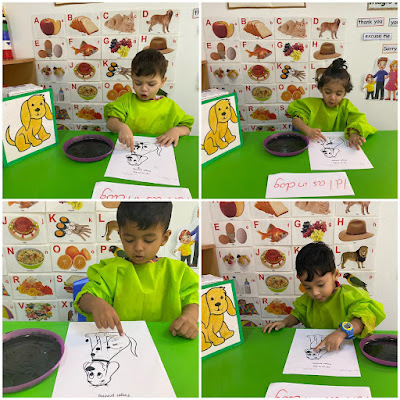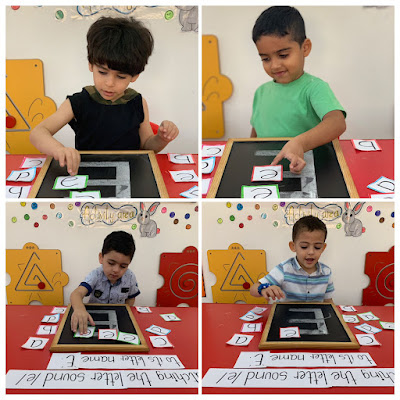Literacy Development In Action
At LONDC, we ensure that our little ones have strong literacy foundations through consistent and continuous support extended by our loving and caring staff. They introduce phonemes and graphemes using various strategies, techniques and methods that capture the little minds and interest.
Simultaneously they focus on language and speech development through activities such as singing rhymes; phonic games; role play; everyday fun activities; art and craft; pictures and objects; sight words and reading stories to them followed by group discussions.
Story - The Smartest Giant in Town
/e/ - envelope, engine, elephant, egg and ..........















































